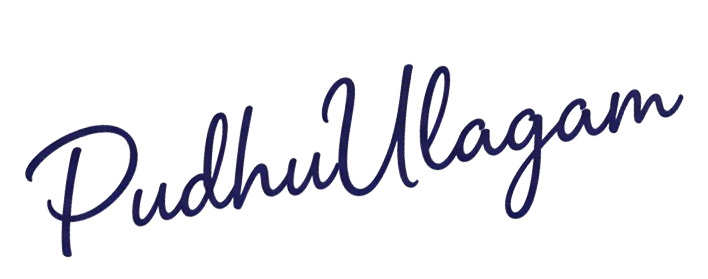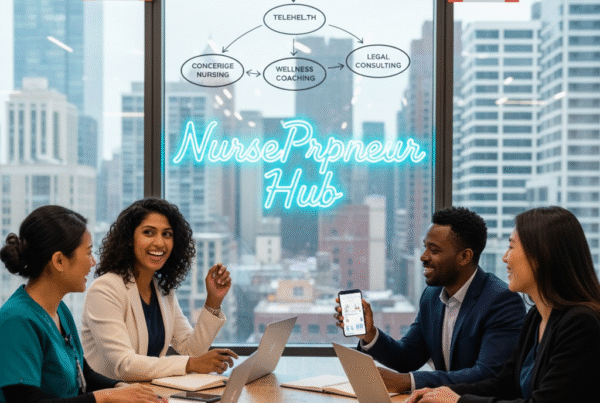The opportunity to ask questions at the end of a job interview is one you don’t want to waste. It’s your moment to continue to prove yourself and to determine whether the position is truly the right fit for you. In this piece, the author provides sample questions recommended by two career experts, organized by category — from how to learn more about your potential boss to how to learn more about a company’s culture.
Select the ones that best match your interests, priorities, and the specific job you’re interviewing for. Write them down — either on paper or in your phone — and review them just before your interview so they stay fresh in your mind. Remember to be considerate of the interviewer’s time. If your conversation was scheduled for an hour and they give you only a few minutes to ask questions, focus on two or three that matter most. You’ll always have additional opportunities to ask questions once you’ve received a job offer.

“So, do you have any questions for me?”
When you reach this point in a job interview — when the interviewer has finished their questions and gives you the chance to speak — you don’t want to be caught off guard. It’s essential to have a clear plan for how you’ll respond and to prepare a thoughtful list of questions to ask that are specific to the opportunity.
So, what kinds of questions should you actually ask — and which ones are best to avoid? To get expert insights, I spoke with two leading job interview experts: Art Markman, a professor at the University of Texas at Austin and author of Bring Your Brain to Work, and John Lees, a UK-based career strategist and author of How to Get a Job You Love. Below are their top recommendations on how to handle this stage of the interview and examples of questions that work best in practice.
How to Approach This Part of the Interview
Focus on two key goals.
Think of this stage of the interview as a dual-purpose opportunity: first, to evaluate the organization and decide if it’s the right place for you; and second, to continue showing that you’re the ideal candidate. According to Markman, one of your main goals should be to use your interview questions to determine whether the company and role align with your professional values and goals.
At the same time, Lees emphasizes that “the interview isn’t over yet,” meaning you still have a chance to demonstrate why you’re the best fit for the position. He suggests saying something like, “I do have a few questions, but before I ask, may I add one thing?” — a great way to reinforce any key points about your qualifications before moving on. Lees also advises candidates to decide in advance on two or three main messages they want to communicate, and if they haven’t had a chance to highlight them earlier, this is the perfect time to do so.
Personalize Your Questions
The way you phrase your questions for the interviewer matters. Instead of asking generic things like “What does a typical day look like?”, try asking, “What would a typical day for me in this role look like?” This subtle change helps the hiring manager visualize you in the position. As Lees explains, it’s a “powerful psychological trick” — once the interviewer imagines you doing the job, it’s difficult for them to let go of that image.
Build Off the Conversation
Make your questions at the end of the interview feel natural and connected to the discussion you’ve already had. Reference specific topics that came up — for example, follow up on a project, a team goal, or a responsibility mentioned earlier. This approach keeps the conversation flowing and shows genuine engagement and attention to detail.
By preparing personalized, relevant, and well-timed job interview questions, you not only learn more about the company but also leave a lasting impression as an engaged, thoughtful candidate.

Sample Questions to Ask at the End of a Job Interview
When preparing for a job interview, it’s smart to plan a few thoughtful questions to ask once the interviewer turns the conversation over to you. Below are well-organized categories of sample questions you can personalize, helping you learn more about the role, the team, and the company’s overall environment.
Questions About the Specific Job
These questions about the position help you understand expectations, priorities, and early goals:
- What are your expectations for me in this role?
- What’s the most important thing I should accomplish in the first 90 days?
- What’s the performance review process like here? How often would I be formally reviewed?
- What metrics or goals will my performance be evaluated against?
- What are the most immediate projects that I would take on?
- How long before I will be… [meeting with clients, managing my own accounts, or collaborating with other departments, etc.]?
Questions About the Team
These questions about the team allow you to learn who you’ll be working with and what challenges to expect:
- What types of skills is the team missing that you’re hoping to fill with a new hire?
- What are the biggest challenges I might face in this position?
- Do you expect my main responsibilities in this position to change in the next six months to a year?
- Can you tell me about the team I’ll be working with?
- Who will I work with most closely? What other departments or units will I interact with?
- Can you tell me about my direct reports? What are their strengths and the team’s biggest challenges?
👔 Questions for Your Potential Boss
If your interviewer is your potential boss, it’s essential to get a sense of their management style and experience:
- How long have you been at the company?
- How long have you been a manager?
- What’s your favorite part of working here?
🏢 Questions About the Company
When asking questions about the company, make sure they go beyond what you can easily find online. Avoid topics that are covered on the company’s website or social media pages.
- What are the current goals that the company is focused on, and how does this team contribute to achieving those goals?
- What gets you most excited about the company’s future?
- How would you describe the company’s values?
- How has the company changed over the last few years?
- What are the company’s plans for growth and development?

🌱 Questions About the Company Culture
According to John Lees, it’s wise to interpret answers about company culture carefully — few interviewers will openly admit that a workplace culture has challenges. That’s why it’s better to ask indirect questions that reveal real insights.
As Art Markman notes, these types of questions can help you “uncover any unexpected elements about your potential new workplace” without asking directly whether the culture is positive or negative.
- How do you typically onboard employees?
This question helps you understand the company’s process for welcoming and training new team members.
If the position will be remote, Markman advises asking directly about how remote employees are integrated into the company culture. This shows that you’re proactive about connection and collaboration, even while working off-site. - What usually surprises new employees once they begin?
- Is there anything I could review before starting that would help me build a shared understanding with my colleagues?
- Markman notes that asking this question not only highlights your enthusiasm for the role but also reflects your eagerness to develop “shared cultural references with the people you’ll be working with.”
- What’s your favorite office tradition?
- What do you and the team typically do for lunch?
- Do you ever participate in joint events with other departments or teams?
- What makes working here different from anywhere else you’ve worked?
- How has the company evolved since you joined?
Questions about professional development, career paths, and future opportunities
According to Markman, it’s essential to understand what growth and career development will look like in the position. You should ensure that you can envision yourself not only succeeding in the current role but also progressing along a career path within the organization that genuinely excites you.
- What learning and development opportunities are available in this role?
- How does the team I’ll be joining continue to develop professionally?
- Can you share examples of career paths that began with this position?
- What are the typical career paths within this department?
- How are promotions generally managed?
- Where have successful employees advanced to after this role?
Closing questions
- What haven’t I asked that you think I should?
- Is there any additional information I can share that would be helpful?
- Is there anything I can clarify for you regarding my qualifications?
- What are the upcoming steps in the hiring process?
- What qualities do you believe are most important for someone to succeed in this role?
Questions to Avoid
Below are some examples of questions you should avoid asking at the end of a job interview:
- What’s the starting salary?
- Can you tell me about your health insurance?
- What are your paid leave policies?
According to Lees, it’s best not to bring up salary and benefits too early in the hiring process. “At this stage, you’re not in a strong position to negotiate because there are still too many unknowns,” he explains. “The right time to talk about salary is after the employer has decided they want you on the team.”
If the interviewer does ask about your salary requirements, this video provides valuable guidance on how to navigate that often tricky question with confidence.
You should also avoid asking questions that attempt to close the deal, such as “So, do I have the job?” Doing so can come across as overly confident or as though you don’t respect the company’s formal interview process.

In addition, steer clear of asking anything you could have easily discovered through your own research about the job or the company beforehand — and make sure you’ve done that research well in advance of the interview.
This opportunity to ask questions is one you don’t want to miss. It’s a valuable moment to further demonstrate your strengths and to determine whether this job is truly the right fit for you. Naturally, you won’t ask all 38 of these questions — instead, select the ones that best align with your interests, priorities, and the specific role you’re interviewing for. Write them down on paper or in your phone, and review them beforehand so they’re fresh in your mind.
Be considerate of the interviewer’s time, too. If your interview was scheduled for an hour and you only have a few minutes left, focus on the two or three questions that matter most to you. Remember, you’ll always have additional opportunities to ask more once you’ve received the job offer.
More Articles
Meta Platforms Stock & Earnings: Complete Guide (2025 Best Update)




Meta Platforms Stock & Earnings: Complete Guide (2025 Best Update)